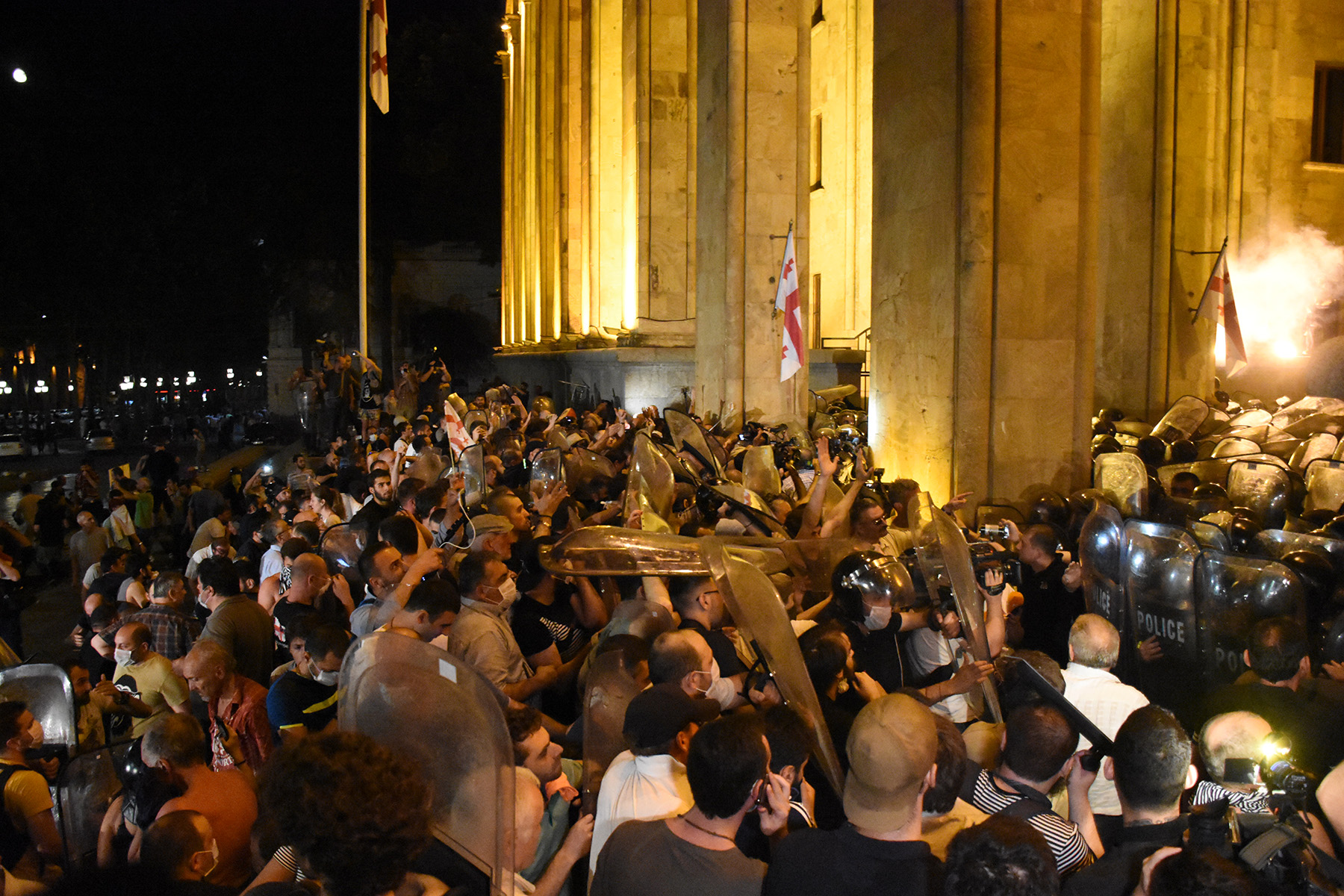
Thousands of protesters have clashed with riot police in front of the Georgian Parliament in Tbilisi at a demonstration triggered by a Russian MP’s appearance in Georgia’s legislative body. Dozens were hospitalised as police deployed tear gas, rubber bullets, and a water cannon during the clashes, which escalated as protesters attempted to storm the parliament.
Russian MP Sergey Gavrilov, a member of the Communist Party, was visiting Georgia together with colleagues to participate in the 26th General Inter-Parliamentary Assembly on Orthodoxy. Gavrilov addressed MPs in Russian from the chairperson’s tribune and sat in his chair, triggering protests from opposition politicians.
On Thursday afternoon, the assembly session was cancelled and Gavrilov was escorted out of the parliament as protesters gathered outside the parliament building. Gavrilov left Georgia warning that ‘negotiations on humanitarian-economic issues between the two countries may fail’ due to the incident.
The protest resumed in the evening as thousands of people angry at Gavrilov’s visit gathered outside the parliament.
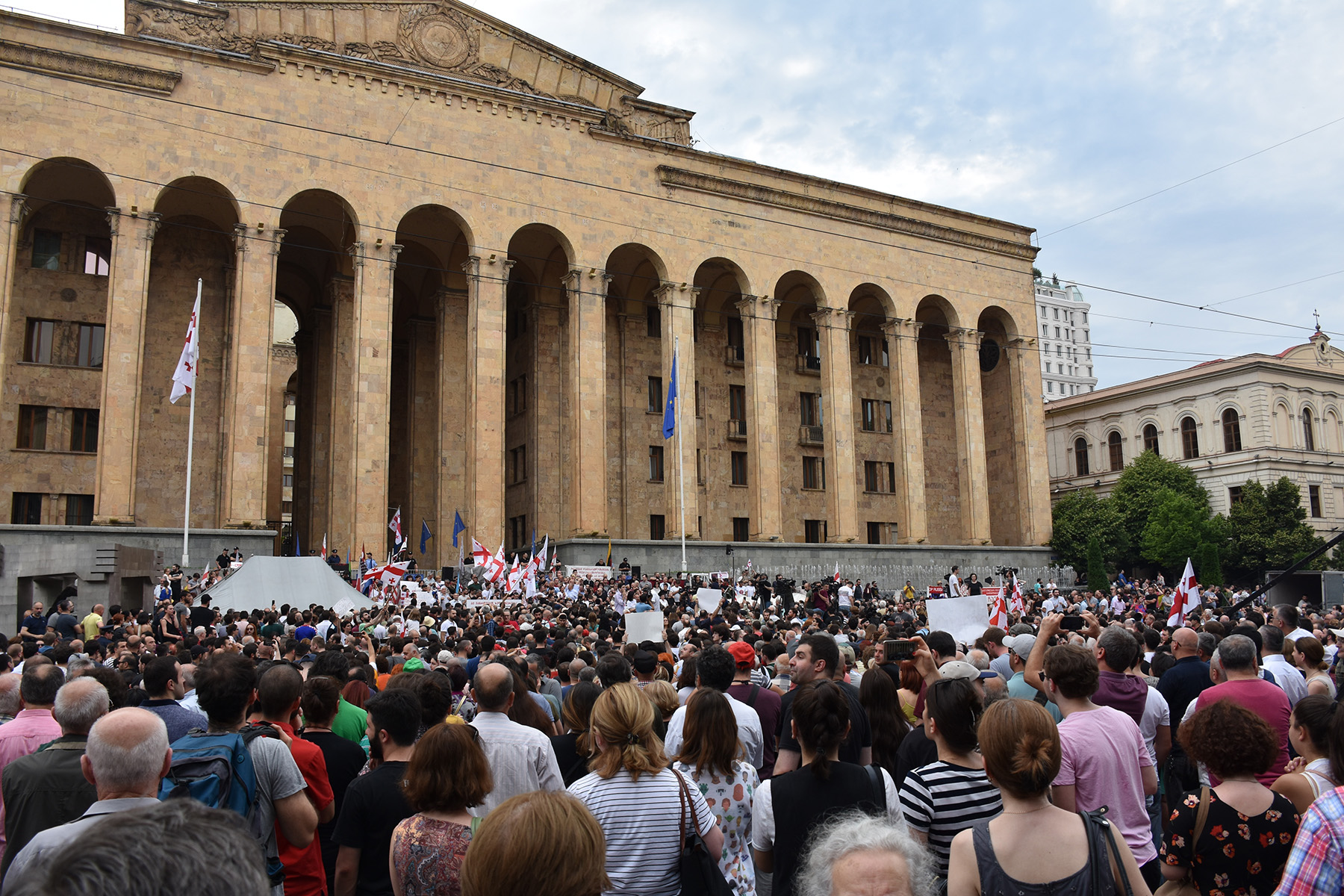
Events took a violent turn after Nika Melia, one of the leaders of the opposition United National Movement Party, called on protesters to march into the parliament building.
‘If those who should resign do not step down within an hour, I believe that we have nothing to do here in front of the parliament. We have to march in peacefully, with our hands in the air, into the parliament building and make our protest even more intense. We will come out once they resign’, said Melia.
Protesters attempted to break through police lines to storm the parliament, and riot police responded with rubber bullets and tear gas in an attempt to disperse them.
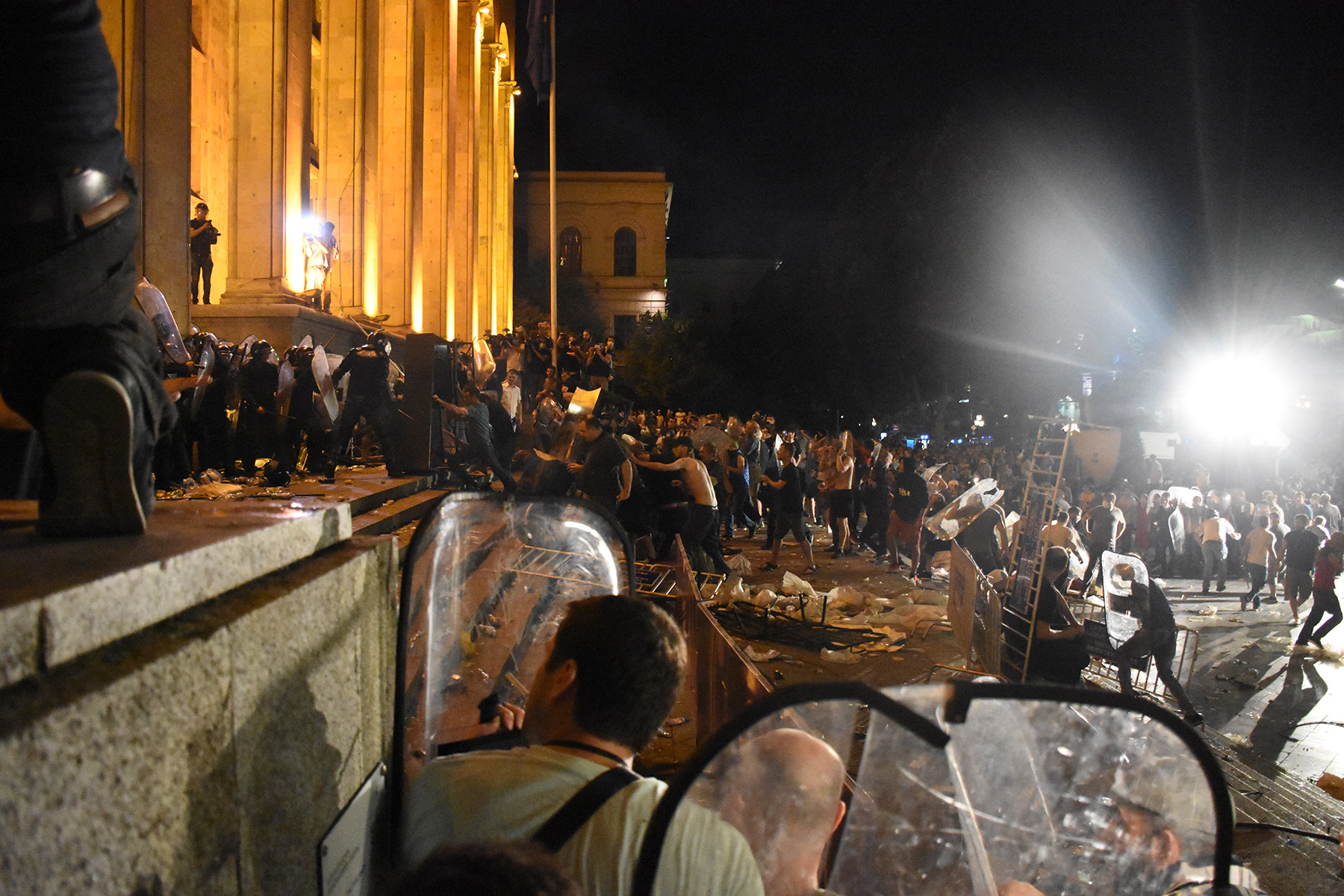
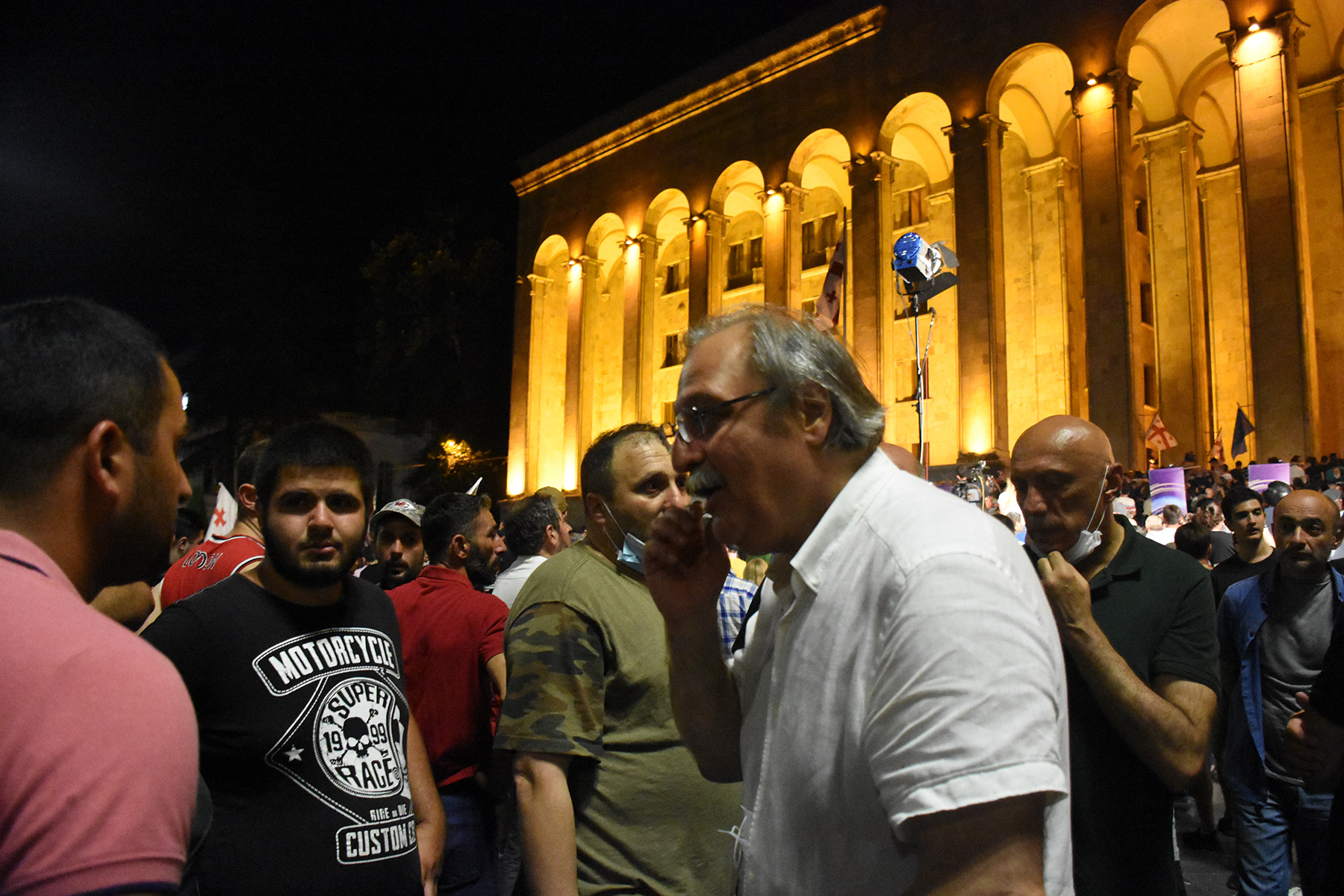
After the protest turned violent, opposition leaders left the scene.
By around 01:00 on Friday morning, the majority of protesters had dispersed although several hundred remained and continued to attempt to force their way into the parliament, with police intermittently firing tear gas and rubber bullets.
At around 01:45, additional riot police were deployed including a water cannon, driving the remaining protesters down Rustaveli Avenue. Small groups of protesters continued to clash with police until around 05:00.
Deputy Health Minister Zaza Bokhua announced on Friday afternoon that 240 people had to be hospitalised during the clashes, including 80 police officers.
‘Two surgeries are currently underway. The condition of one patient is critical […] 102 remain in hospital. Most of the injuries involved trauma, bruising, and eye trauma’, Bokhua said.
At least two people lost an eye after being hit by rubber bullets. Around a dozen journalists were reported injured during the clashes.
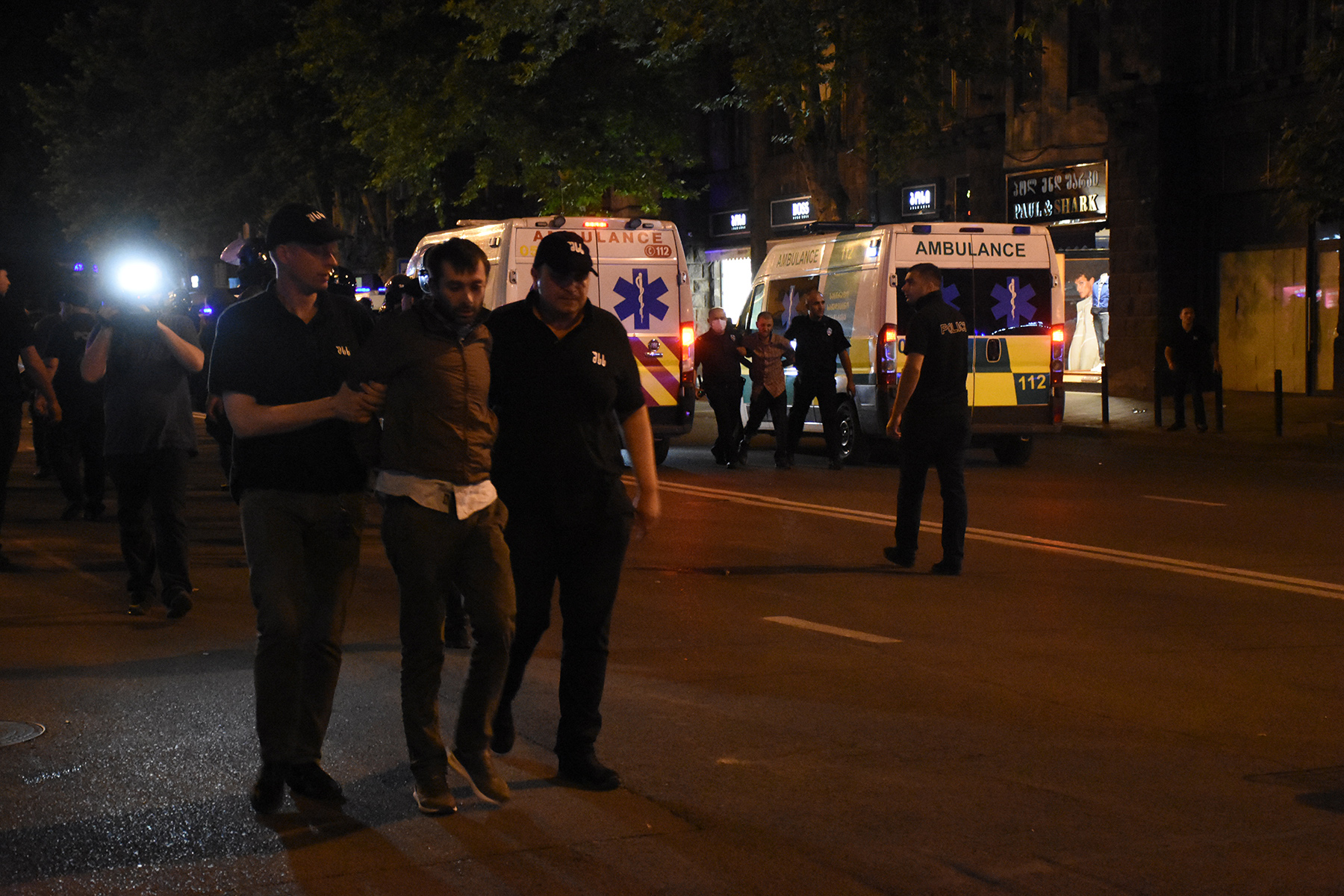
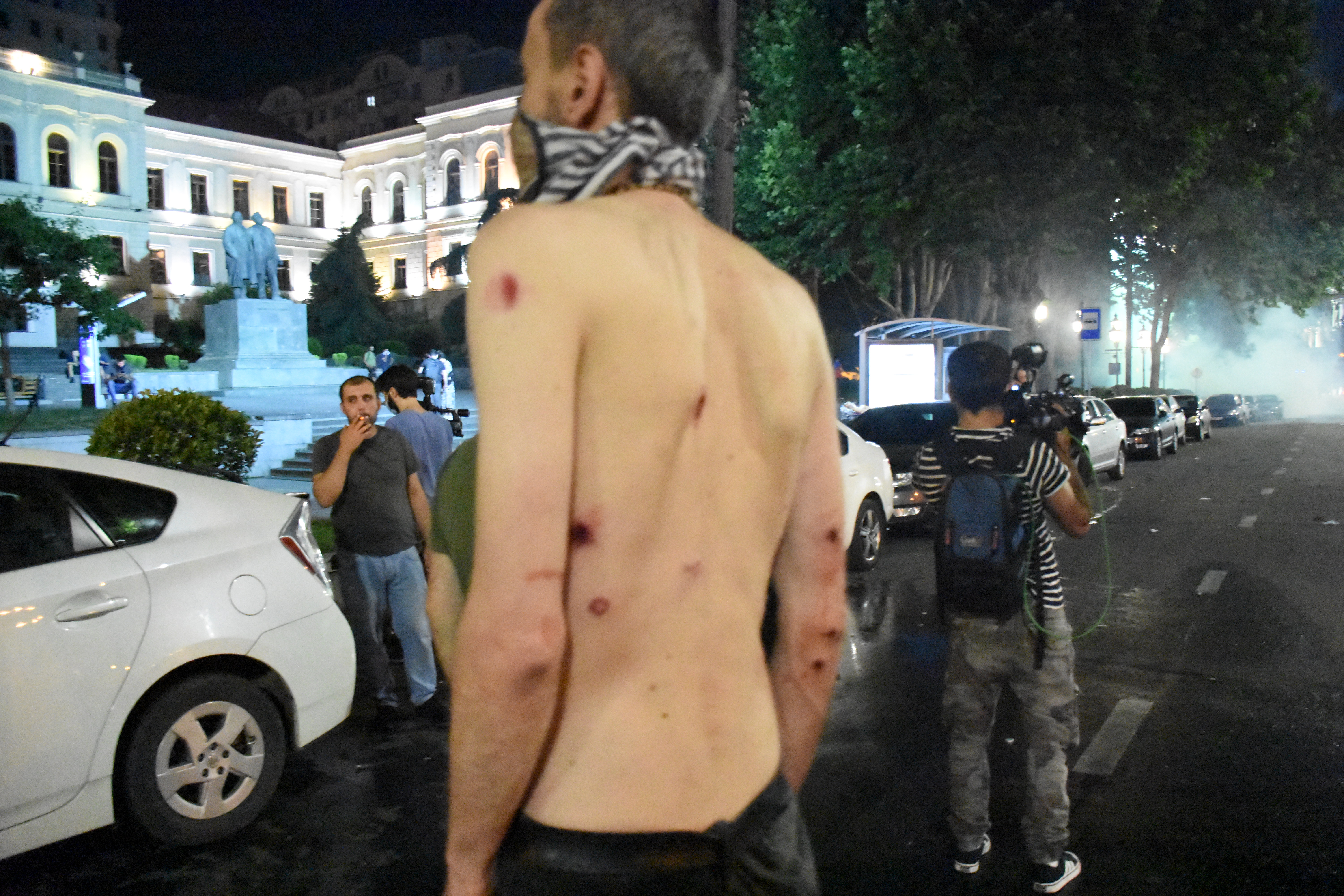
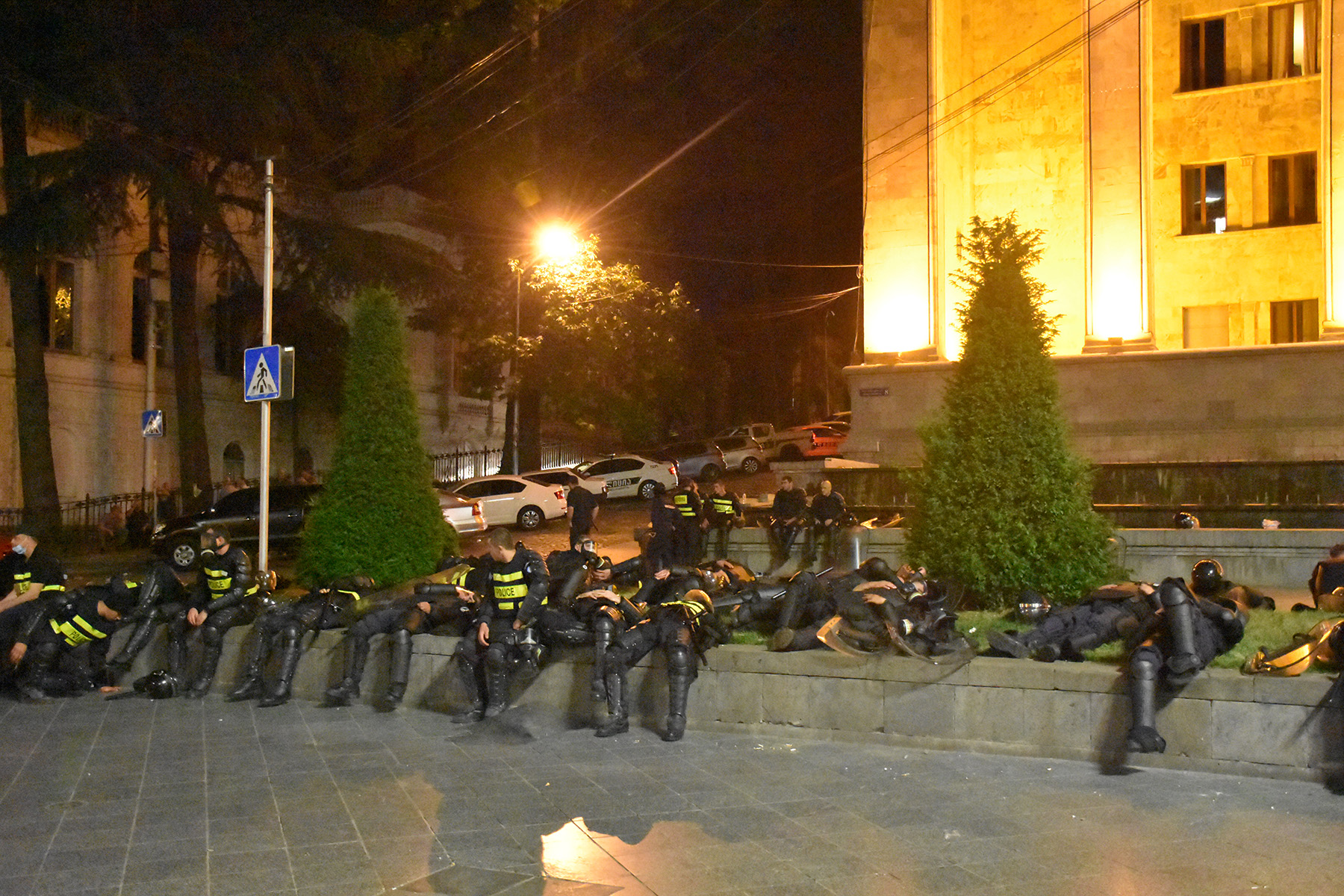
‘The police used proportional means’
During the protest, opposition party leaders from the United National Movement and European Georgia demanded that Georgian Parliamentary Chair Irakli Kobakhidze, Interior Minister Giorgi Gakharia, and State Security Service Head Vakhtang Gomelauri resign, or pledged they would occupy the parliament. They also demanded the government resign and call early parliamentary elections.
The Interior Ministry called on the protesters to disperse and ‘not to act on a provocation’.
Interior Minister Giorgi Gakharia said the clashes were a ‘politically motivated attempt at catastrophe’.
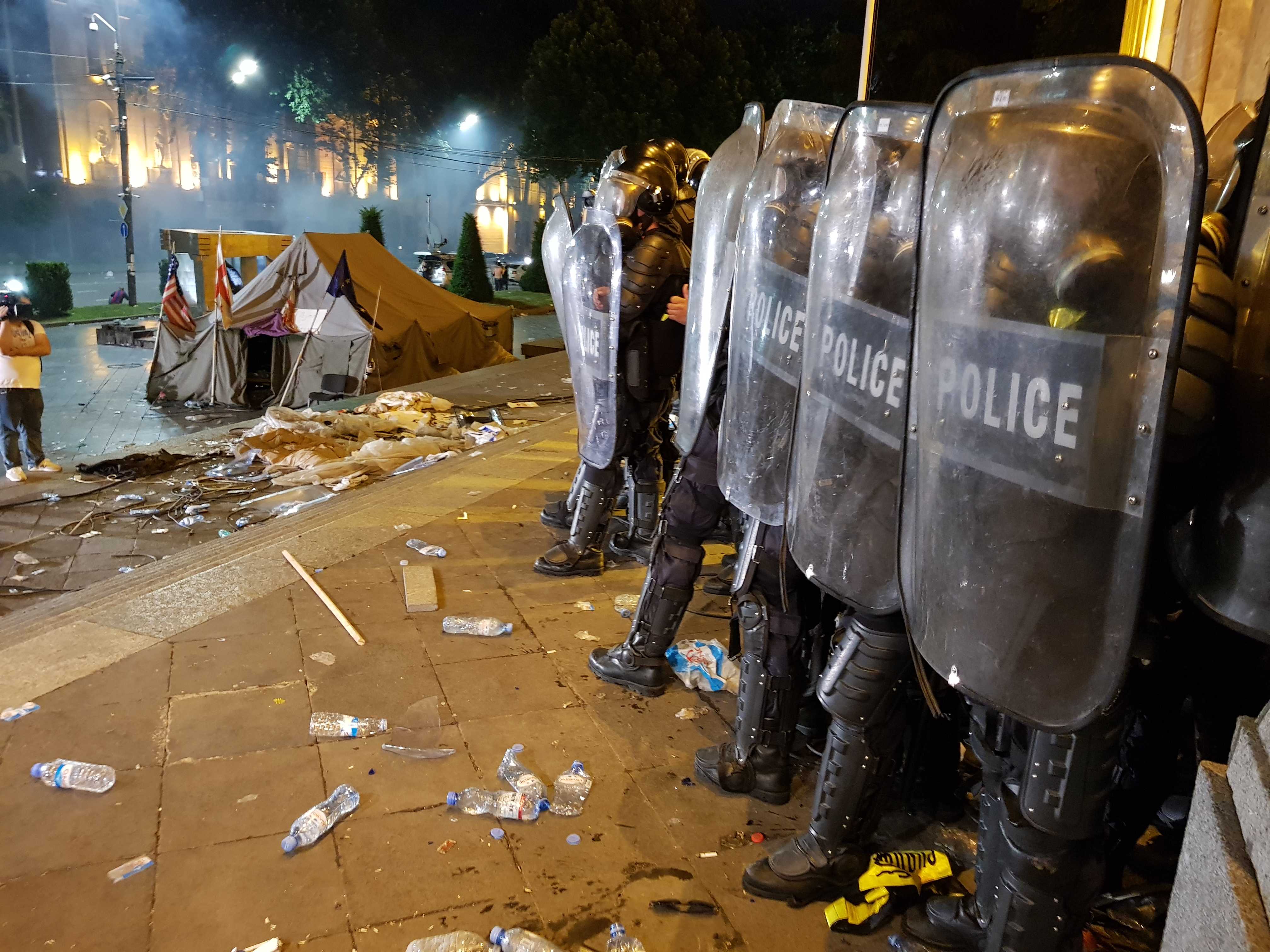
When asked by journalists if he had considered resigning, Gakharia said he would do so as soon as it was needed.
‘The protest in front of parliament has passed beyond freedom of expression and […] became violent’, the Interior Ministry said in a statement. They said that as protesters refused to comply with their demands to disperse, ‘in order to prevent accession to the Parliament, in order to prevent clashes and injury to law enforcement officials and citizens, the police used forceful proportional special means, provided by the law’.
Meanwhile, Georgian Prime Minister Mamuka Bakhtadze called the developments a ‘provocation’, despite admitting the original protest was fair.
The following day, Bakhtadze insisted the police acted properly.
‘The situation, which was created because of the harsh mistake made by some of the members of our team followed by an honest protest of our citizens, was basically fully resolved by our team’, said Bakhtadze.
He added that the protest was used by ‘destructive political forces’ and ‘passed the boundaries of the constitution’.
He said protesters had assaulted police which was orchestrated by the ‘revanche-thirsty destructive opposition’.
‘The police acted within the legal framework, protected the state, society, and eliminated crime’, said Bakhtadze.
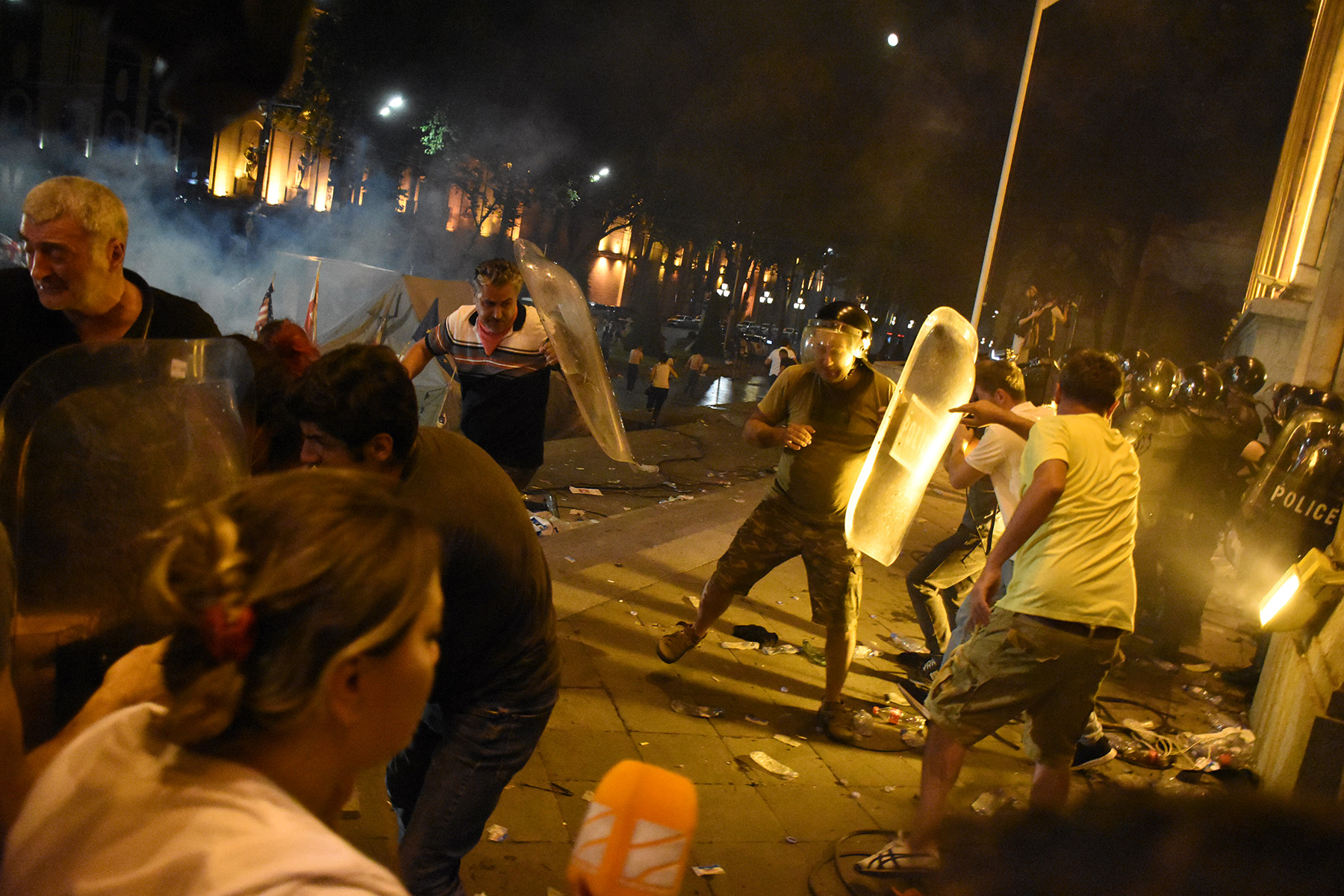
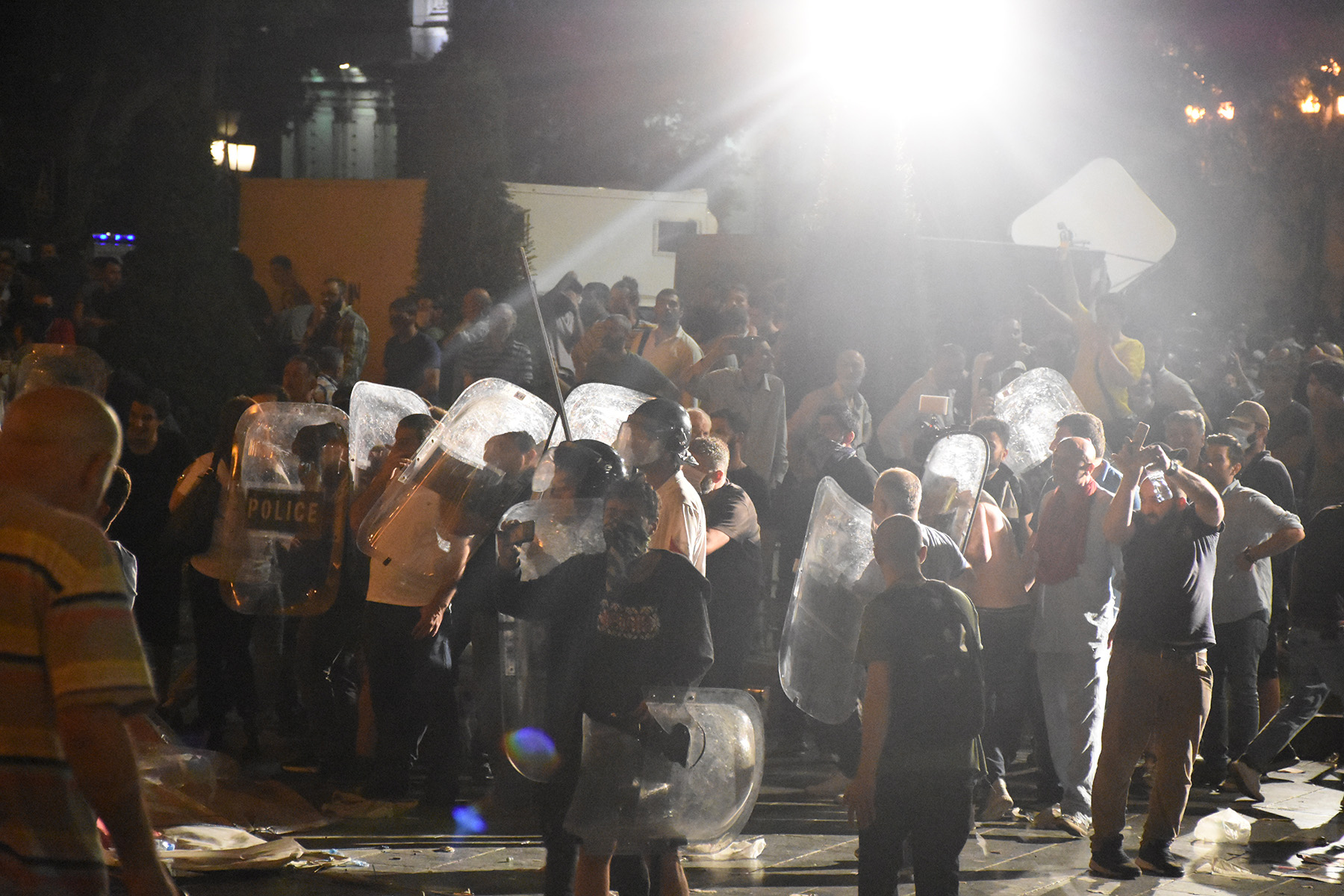
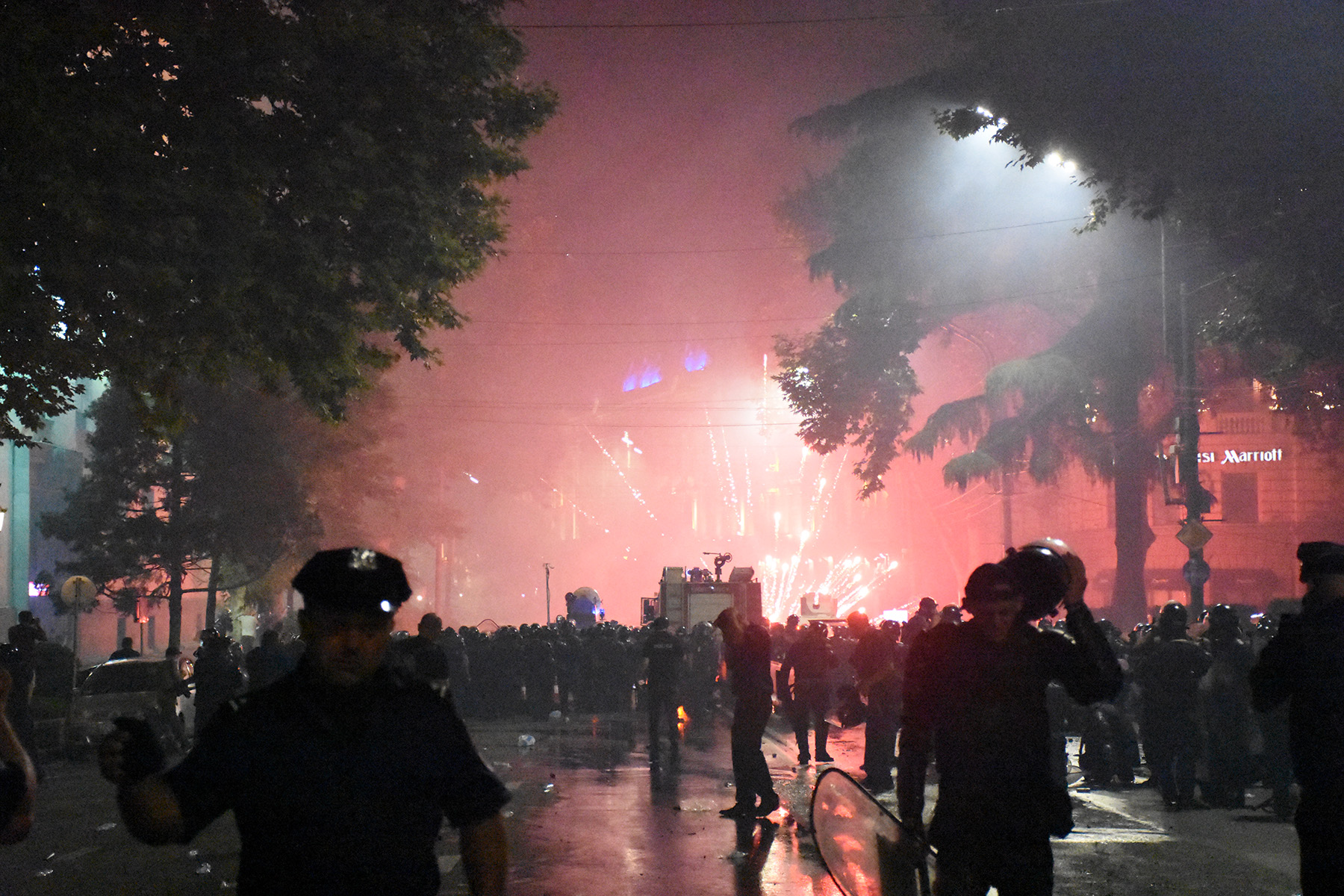
Gigi Ugulava, the leader of the European Georgia Party said that the Interior Ministry offered to negotiate with them together with the Prime Minister, however ‘the meeting never happened as they deployed tear gas’.
According to Russian Communist Party MP Sergey Gavrilov, whose appearance in Georgia’s parliament sparked the protest, ‘a number of Georgian MPs’ apologised to him over the incident.
Reactions to the violence
The clashes gained international attention as both the US and British Embassies commenting on the developments while the German ambassador, Hubert Knirsch visited the scene.
Knirsch called on protesters and police to stay calm and peaceful.
In their statement, the US embassy said they were ‘following very closely events at the Georgian Parliament in Tbilisi this evening. We recognise the hurt that many people feel today. We urge all sides to remain calm, show restraint, and act within the framework of the Constitution at all times.’
We are following very closely events at the Georgian Parliament in Tbilisi this evening.
We recognise the hurt that many people feel today.
We urge all sides to remain calm and act within the law at all times.
— UK in Georgia (@UKinGeorgia) June 20, 2019
Georgia’s Public Defender Nino Lomjaria said that while protests were fair, the violence that followed from protesters was not.
‘I’d like to remind protest attendees that the violence crossed the boundaries of freedom of assembly and expression. I call on the government to take adequate and measures to identify who is responsible in order to […] prevent clashes’, said Lomjaria.
The 26th General Inter-Parliamentary Assembly of Orthodoxy
The 26th General Inter-Parliamentary Assembly of Orthodoxy started in Tbilisi on 19 June and is set to last until Friday. The assembly was opened by Georgian Parliamentary Chair Irakli Kobakhidze on Wednesday as he said that ‘Christianity was not only about faith or a means for saving national identity’, but that ‘Christian traits […] saved Georgia as a state and brought it to where it is today, to freedom’.
The following day, the assembly sitting was opened by Gavrilov. After seeing him address the assembly from Kobakhidze’s seat, opposition MPs rushed to the tribune during a break and occupied the chair, insisting they would not let Gavrilov return to it.
They were confronted by Ada Marshania and Emzar Kvitsiani, MPs from the Alliance of Patriots Party. Kvitsiani, who demanded the opposition leave and let Gavrilov back to the chair, was accompanied from parliament by guards. He told journalists that Gavrilov was ‘pro-Georgian’.
Gavrilov has previously voted in favour of Abkhazia and South Ossetia’s independence from Georgia.
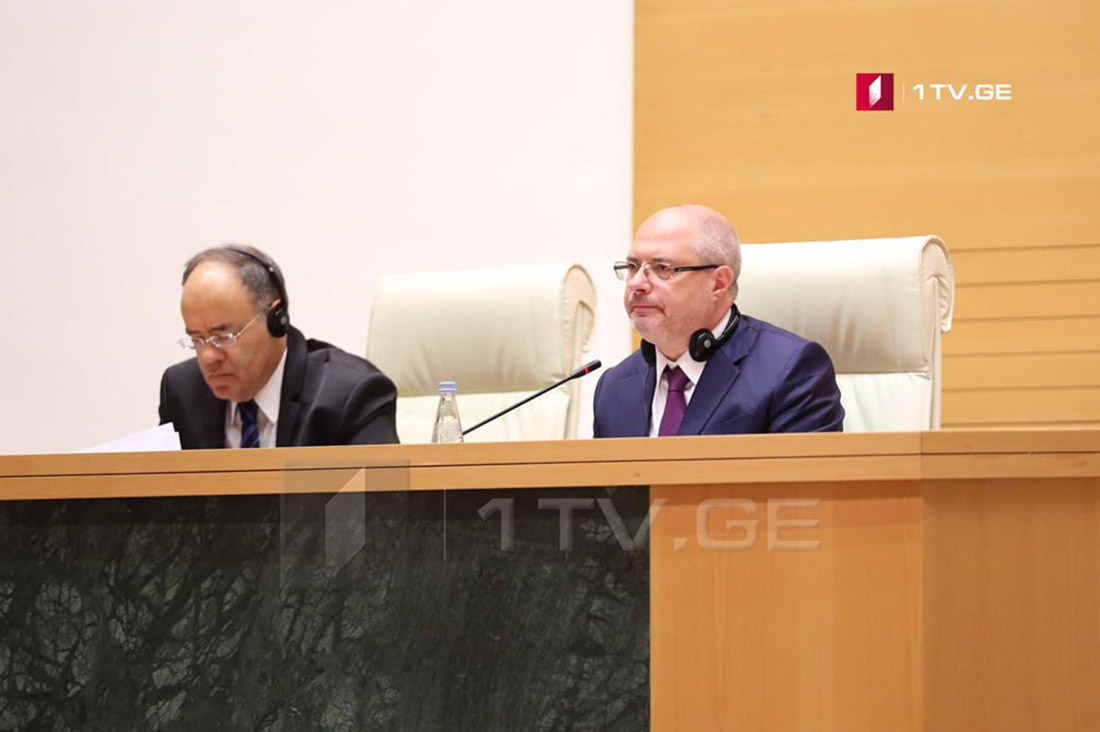
The head of the Georgian delegation of the Orthodox assembly, Georgian Dream MP Zakaria Kutsnashvili, was surrounded by activists on Thursday afternoon, who called him a ‘traitor’.
Kutsnashvili unapologetically tore up a banner saying ‘Shame on the government’ that activists were waving behind them.
He later apologised after a large demonstration was announced to take place outside parliament and politicians including Georgian Dream chairman Bidzina Ivanishvili, PM Mamuka Bakhtadze, and President Salome Zurabishvili denounced Gavrilov’s presence at the parliamentary tribune.
The opposition has demanded that the Chair of the Georgian Parliament, Irakli Kobakhidze, resign.
Georgian President Salome Zurabishvili accused Russia of using religion for political reasons.
‘What does Orthodox inter-parliamentary assembly mean? What kind of Orthodox union can exist between us and the country which is not only the occupier of our territories but also persecutes religion and all Christian rules […] There is nothing Orthodox about it. It’s characteristic for Russia to use religion for political reasons. And if this is true, why do we play along’, said Zurabishvili.
Both Parliamentary Chair Irakli Kobakhidze and the Prime Minister Mamuka Bakhtadze said that it was ‘very hard’ seeing a Russian politician sitting in the parliamentary chair.
Chairman of the Georgian Dream party Bidzina Ivanishvili said that he shared the outrage of the public.
‘It cannot be allowed for a representative of the occupier state to chair any kind of forum in the Georgian Parliament. As I’ve been told, this was a protocol mistake, the political importance of which the organisers were unable to foresee. This has to be handled accordingly’, said Ivanishvili. He added that he had spoken with Kobakhidze and recommended the session be cancelled immediately.




 20 June 2019
20 June 2019


